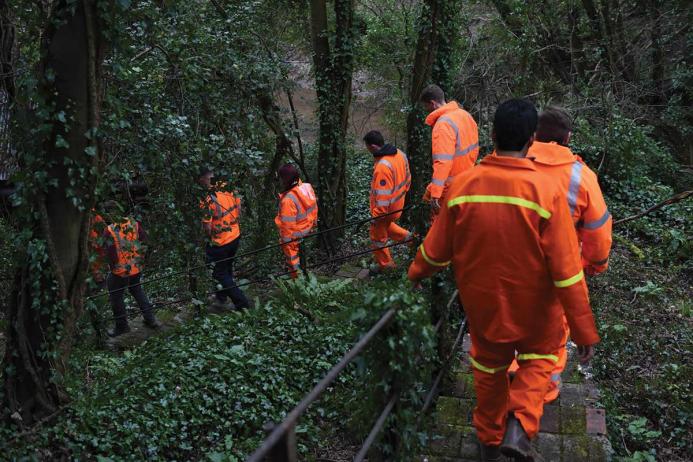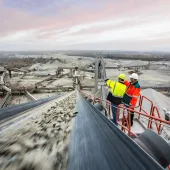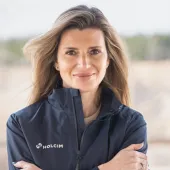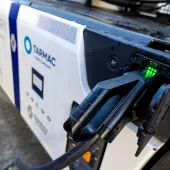IQ shortlists nominees for the Emerald Challenge
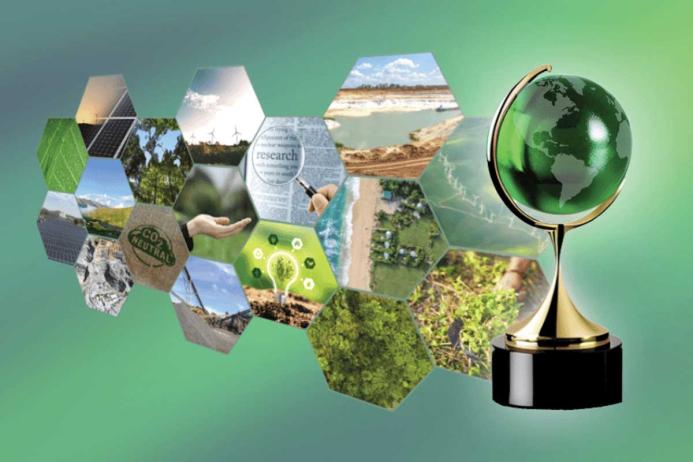
First published in the October 2023 issue of Quarry Management
A number of ambitious projects have been shortlisted for the Institute of Quarrying’s (IQ) Emerald Challenge, which supports the mineral products industry’s sustainability agenda of achieving net zero.
The industry has a responsibility to become more sustainable and decarbonize its operations in order to protect the environment, improve social responsibility, and enhance economic competitiveness. There are a number of ways that sustainability can be achieved. Some of the current methods include looking into switching to renewable energy, improving energy efficiency, reducing waste and pollution, and restoring land to improve biodiversity. The industry is already taking steps to become more sustainable and has set a target to achieve net-zero emissions by 2050, in line with the COP27 agreement and the UN Sustainable Development Goals.
The Emerald Challenge, introduced at the beginning of the year, serves as a grant opportunity for IQ members to work on projects and research ideas aimed at helping their organizations and the wider industry address these global challenges. As a reward for the successful applicant, an annual grant of £5,000 is set to be given to an IQ Technical Member (TMIQ), Member (MIQ), or Fellow (FIQ) whose project directly supports achieving net zero and decarbonization throughout the quarrying and mineral extractives industries.
Steve Cole, a member of the IQ Council and founder of the Emerald Challenge, was responsible for the original idea and concept. He says: ‘It’s truly exciting to witness the presentations of our four finalists at last. The quality of these submissions has exceeded our expectations; we’re deeply impressed by the diverse array of solutions proposed. It’s abundantly evident that there’s a collective passion for fostering ideas aimed at safeguarding our environment, aligning perfectly with the UK’s Sustainable Development Goals.’
IQ President Viv Russell adds: ‘I was delighted with the quantity, quality, and diversity of entries for the Emerald Challenge. It made the judging process challenging when narrowing down the applicants, but it was a pleasure to receive so many ambitious projects submitted from a range of individuals who clearly share a passion for improving the industry’s sustainability efforts.’
The following project submissions have made it to the shortlist. Within the submissions, each applicant outlines their area of focus, objectives, team members involved, research methodology, and a business case demonstrating how the project will benefit the industry.

Pollution and water management
One of the submissions under consideration involves a project concerning pollution control and water management in Scotland’s central region. This project aims to find an environmentally friendly and cost-effective solution for managing silt during timber haulage road construction projects.
The plan includes extensive research and testing across different regions of Scotland using sustainable materials known for sediment capture. The applicant is committed to regular reporting and feedback from the Institute to encourage widespread adoption of their eco-friendly silt-management concept.

Improving lime processes
In this submission, the applicant questions the current lime process and whether it could be more sustainable. Their submission involves the implementation of a by-product from the hydration of lime processes into an existing quicklime product. With the addition of a by-product, the integration aims to achieve cost savings in electricity and natural gas usage, reduce water consumption, and lower the carbon intensity of the product, aligning with the organization’s sustainability goals.
As for the long-term results, the applicant anticipates a reduction in transportation costs and environmental benefits by avoiding the removal of the by-product to third parties. Their research methodology involves rigorous testing and quality control to ensure that the blended product meets the correct specifications.
Decarbonizing asphalt
In this proposal, the applicant addresses the challenge of decarbonizing asphalt production in the construction industry. Highlighted in the submission are the significant emissions associated with gas consumption in asphalt plants and the limitations of existing solutions. In the proposed solution, the applicant intends to investigate the feasibility of using pyrolysis technology to generate thermal energy from waste biomass feedstock. This energy can potentially reduce gas consumption and carbon emissions in asphalt production.
The research objectives include determining whether a co-located pyrolysis plant can effectively reduce gas consumption in asphalt plants, assessing the potential use of biochar as a carbon offset, and examining how the pyrolysis process can be integrated into asphalt production. The study will also consider the financial viability, local feedstock supply, and carbon-reduction potential of the proposed solution.
Blasting down CO2 emissions
This submission focuses on reducing CO2 emissions in hard rock quarries through enhanced blast fragmentation. Objectives include measuring various parameters during a baseline blast, designing a new blast for improved fragmentation, and then re-measuring the parameters for the improved blast.
The methodology involves the purchase of necessary equipment for baseline and improved blast assessments, data analysis, and reporting. The applicant emphasizes the potential industry-wide impact of the project in reducing emissions and achieving cost savings, highlighting the importance of IQ’s support and platform for dissemination.
The next steps
The winning submission will be decided following each applicant’s presentation, which will provide further insight into how each project will contribute towards achieving net zero. Amongst the judging panel for the Emerald Challenge submissions sits the IQ President, IQ Chair, IQ CEO, and representatives from the board of trustees, council, and a representative of IQ’s Education and Training team.
The winning submission is set to be announced ahead of IQ’s annual Fellows’ Lunch and Student Awards event in London, where the winner will be recognized and presented with an award in person for their achievement.
Subscribe to Quarry Management, the monthly journal for the mineral products industry, to read articles before they appear on Agg-Net.com
